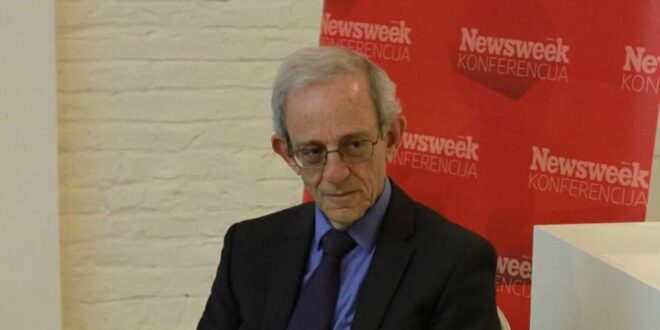Serbia’s efforts to destabilize Kosovo in order not to take control of its majority Serbian north should be obvious to everyone today, Daniel Server, a professor at the School of Advanced International Studies at Johns Hopkins University in Washington, points out to peacefare.net .
The server reminds that last year there were tensions caused by license plates, i.e. the decision to switch all vehicles in Kosovo that had Serbian registration plates to Kosovo markings, the boycott of the municipal elections in the spring, the subsequent riots against the elected non-Serb mayors, the attack on the NATO peacekeeping forces in May, the kidnapping of the Kosovo police – all these were the prelude to the thwarted rebellion last weekend.
But the United States and the EU have so far failed to draw the necessary conclusions.
They continue to call for dialogue without any consequences for Belgrade.
The American ambassador in Belgrade (Christopher Hill) even thought it appropriate to suggest that Serbia should join NATO.
The vast majority of Serbs reject that perspective.
Within the EU, it is difficult to hold Serbia accountable because every decision requires unanimity.
Viktor Orbán’s pro-Russian Hungary is a common spoiler.
The outcome of Sunday’s elections in Slovakia will make Bratislava Moscow’s next best friend.
The persistent and fruitless attempt by the Biden administration to turn Serbia towards the West is blocking any serious rethinking of policy in the Balkans.
American officials simply do not want to accept failure.
They continue to seek appeasement, they are blind to Belgrade’s malfeasance.
It is not only Kosovo
This blindness will have consequences, Server points out.
Serbia, like Russia, sees the West as divided and weak.
Belgrade can temporarily withdraw from Kosovo in order not to cause a serious reaction.
But Serbia will continue to pursue irredentist goals in Montenegro and Bosnia and Herzegovina.
In Montenegro, the formation of the government is blocked.
The new president there (Jakov Milatović) wants pro-Russian parties in the coalition.
The mandate is resisting, under pressure from Washington and Brussels.
But he also refuses to cooperate with the Western-oriented former ruling party. The country is in a dangerous limbo.
Belgrade, together with the Serbian Orthodox Church, could create chaos there, as has been seen many times in recent years.
In Bosnia and Herzegovina, a high representative of the international community made a series of unwise decisions that damaged his own reputation.
He can no longer freely enter 49 percent of the territory of the country known as Republika Srpska (RS).
The leader of that entity (Milorad Dodik) took the entity a few short steps away from secession.
He is only waiting for the approval of Moscow and Belgrade to declare de jure independence.
He has already separated the RS from the judicial and executive authorities in the country.
What’s next?
The war in Ukraine will be an important factor in what happens next in the Balkans.
The omens are not favorable in any of the possible scenarios.
If Russia were to lose in Ukraine, Moscow could try to get compensation in the Balkans.
The method would be destabilization, not outright aggression.
Serbia could be given the green light and covert help to create chaos in northern Kosovo, force the establishment of a pro-Russian government in NATO member Montenegro and allow the RS to declare full autonomy if not independence.
If Russia wins in Ukraine by keeping Crimea and at least part of Donbass, the precedent will strengthen Serbia’s efforts to at least de facto if not de jure control the Serbian population in Kosovo, Bosnia and Montenegro.
If the war in Ukraine continues for another year, Moscow may decide to refocus on the Balkans and set a precedent there for what it wants in Ukraine.
All these scenarios would mean big losses for the US and the EU.
They can be prevented. But only if the current policy is re-examined and a much tougher approach is taken in the fight against Serbian irredentism, Server concludes.
 Eurasia Press & News
Eurasia Press & News



